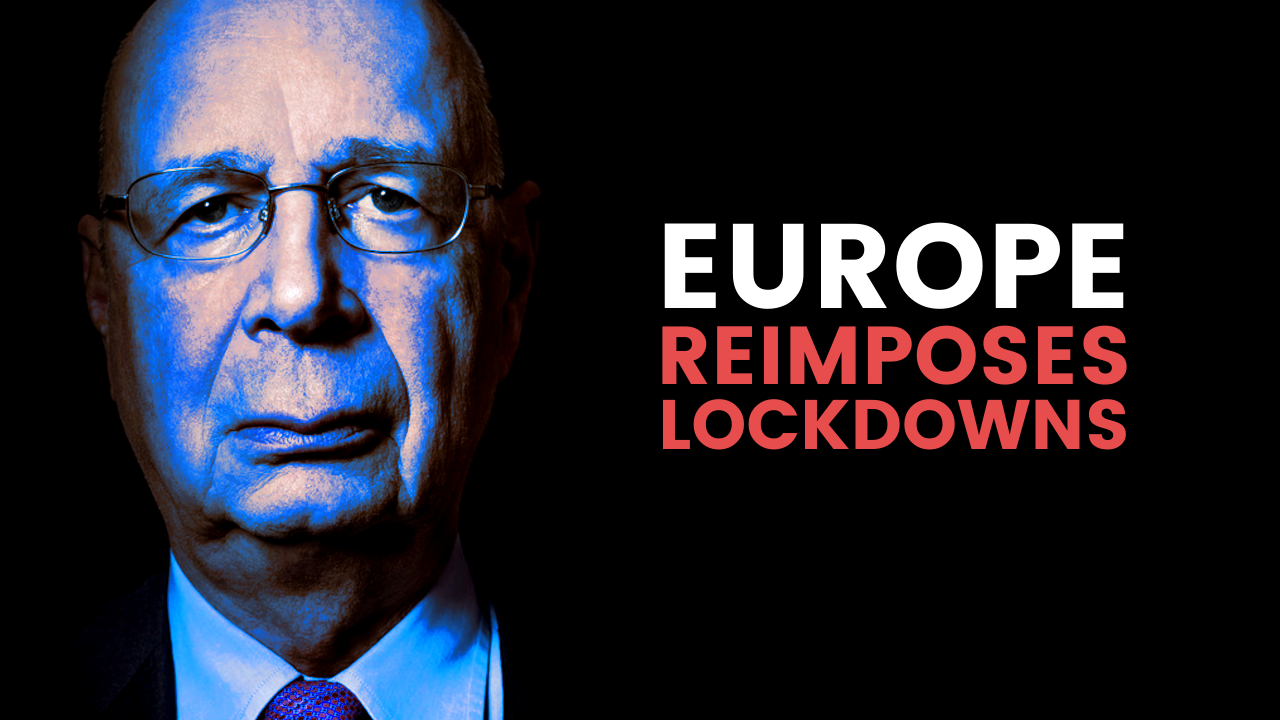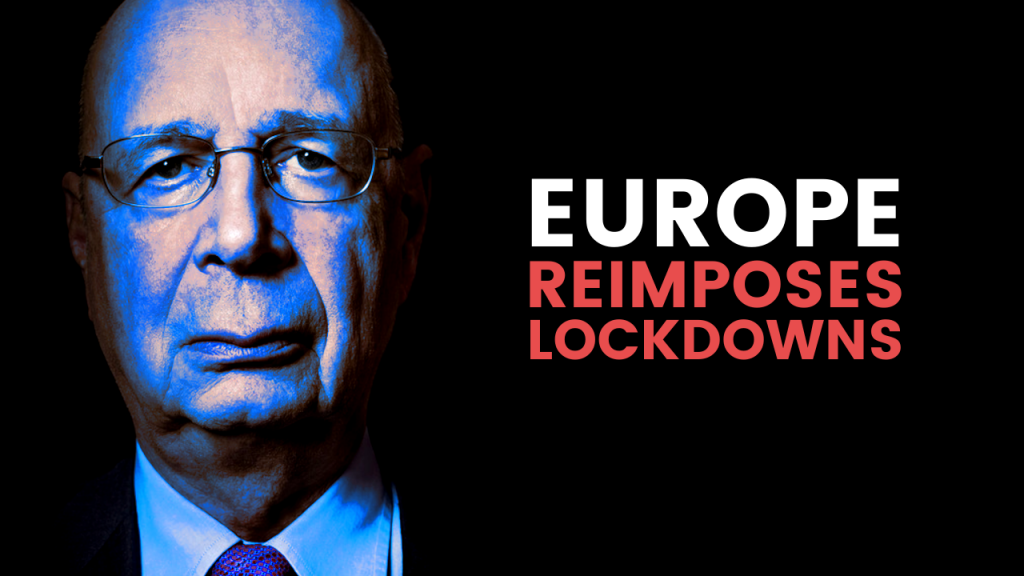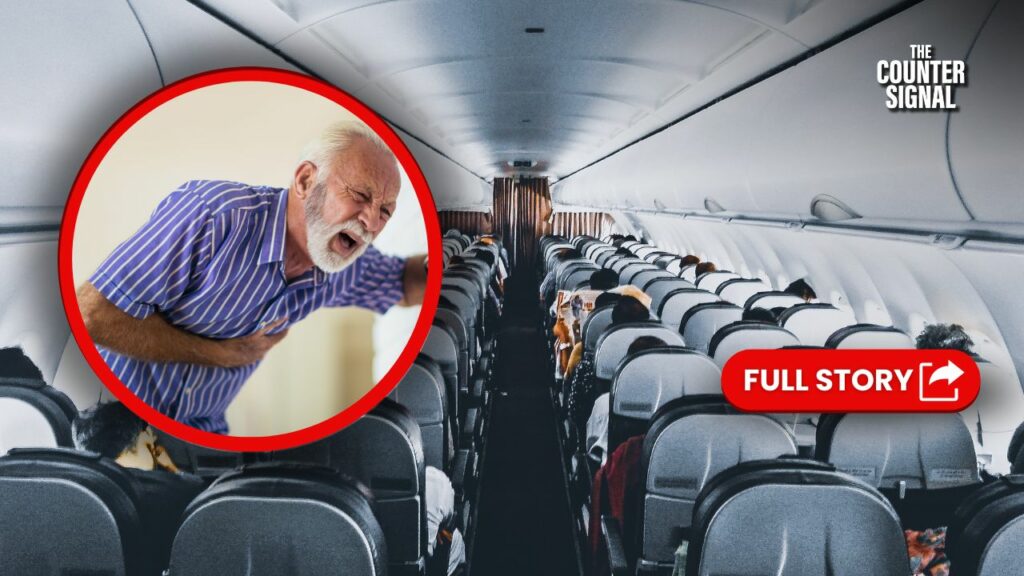
Despite extremely high vaccination rates, several European countries have announced the return of lockdowns and pandemic measures in quick succession.
On Friday, the Netherlands chose to introduce a new lockdown, becoming the first, but not last, Western European country to return to lockdowns since they were widely lifted in early Summer.
JUST IN – Netherlands to impose new lockdown and restrictions affecting all people – vaccinated or not – effective from tomorrow night.
— Disclose.tv (@disclosetv) November 12, 2021
According to the caretaker Prime Minister, Mark Rutte, the lockdown will last three weeks, leading to the closure of bars, restaurants, and some essential shops after 8 pm, and force non-essential retail stores to close by 5 pm, reports The Guardian.
Additionally, social distance and capacity limits on gatherings will make a comeback, limiting house gatherings to a four-person maximum.
This decision was apparently made due to skyrocketing case numbers, despite the Netherlands reportedly having a double vaccination rate of 85 per cent.
Around 85% of the adult Dutch population have been fully vaccinated against #COVID19. Cases rose yesterday in the Netherlands to a record high of more than 16,000.
— Disclose.tv (@disclosetv) November 12, 2021
Similarly, Norway is reintroducing its COVID “health pass” after lifting all restrictions only two months ago. They, too, cite an uptick in cases despite having a high rate of vaccination.
JUST IN – Norway to reintroduce its coronavirus "health pass" after lifting all restrictions in late September.
— Disclose.tv (@disclosetv) November 12, 2021
According to Norwegian Prime Minister Jonas Gahr Støre, the decision to reimpose a vaccine passport is to avoid lockdowns and more drastic mandates or restrictions.
“This means that you can live as normally as possible, even if there is a lot of infection in society,” he claimed while speaking at a press conference.
However, that isn’t the only measure being taken.
Unvaccinated health care workers will also be subject to regular COVID testing and must wear masks while working, a policy that will likely be expanded to include all public sector workers.
Meanwhile, Austria, which has a relatively lower vaccination rate at roughly 65 per cent, is also planning to impose lockdowns, but only if you’re unvaccinated — a true apartheid state.
JUST IN – Austria to impose nationwide lockdown for the unvaccinated population, Chancellor Schallenberg announces amid "sharply rising infection rates".
— Disclose.tv (@disclosetv) November 12, 2021
Chancellor Alexander Schallenberg has yet to say when he will implement the lockdown but said he would make the official announcement on Sunday, just before Upper Austria and Salzburg implement their own lockdowns on Monday.
“The aim is very clear: that we give the green light this Sunday for a nationwide lockdown for the unvaccinated,” said Schallenberg, speaking to a news conference.
“…The development is such that I do not think it is sensible to wait,” he continued. “…We will take this step now, and my wish is that we take this step on Sunday and nationally for all nine provinces.”
Perhaps even more extreme, on the same day, Latvia announced that all unvaccinated lawmakers would be prevented from voting on legislation and participating in parliament, effectively nullifying their roles as elected members of government.
JUST IN – Latvia bans lawmakers who refuse the #COVID19 vaccine from voting on legislature and participating in parliamentary discussions (AP)
— Disclose.tv (@disclosetv) November 12, 2021
From East to West, it appears that EU countries are returning to the authoritarianism so greatly shunned and resisted over the last year as they prepare for the coming flu season — a dark winter, so to speak.
While some level of normalcy has returned to Canada, and Ontario Premier Doug Ford even announced that he plans on removing all restrictions by March 2022, there is little hope that Canadians will ever return to normal.
Indeed, less than a month after the announcement was made, Ford paused his plan, citing, once again, cases.












